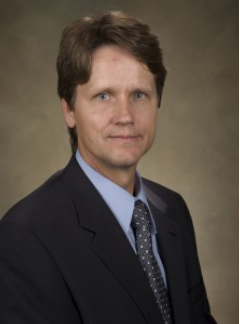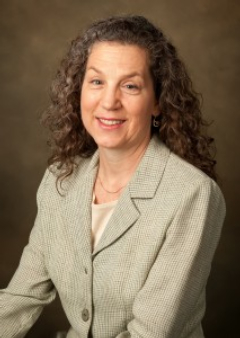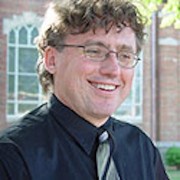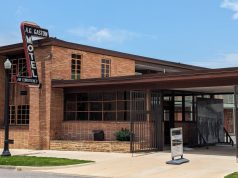TUSCALOOSA, Ala. — The University of Alabama National Alumni Association has announced the 2014 recipients of the University’s highest honor for excellence in teaching – the Outstanding Commitment to Teaching Awards.
This year’s recipients are: Dr. Viola L. Acoff, head of the department of metallurgical & materials engineering; Dr. Robert Brooks, professor of finance and Wallace D. Malone Jr. endowed chair of financial management; Dr. Kathryn S. Oths, professor of anthropology; and Dr. James Hall, former professor and director in UA’s New College.
Heather Ammons, president of the UA-AAA organization and the academic adviser in the Culverhouse College of Commerce, recognized, along with UA President Judy Bonner, the 2014 OCTA recipients at the Oct. 1, fall faculty-staff meeting in the Bryant Conference Center. An awards presentation also occurs at the NorthRiver Yacht Club with National Alumni Association President Jimmy Warren.
Established in 1976, the Outstanding Commitment to Teaching Award recognizes dedication to the teaching profession and the positive impact outstanding teachers have on their students. The National Alumni Association, which gives the annual OCTA awards, is made up of more than 33,000 active alumni and friends of the University organized into more than 100 local chapters nationwide. The association stimulates interest in and supports the betterment of the University and awards more than $4 million a year in academic scholarships.
The 2014 OCTA winners :

Dr. Viola L. Acoff joined the UA faculty in 1994. Acoff has been active in research on welding metallurgy and has been awarded more than $7 million in externally funded research grants, including a National Science Foundation CAREER Award. She has published more than 80 peer-reviewed papers, co-authored three books, co-edited three books and given more than 100 invited and contributed talks on her research. She has presented her research on every continent except for Antarctica. In addition, she develops and teaches workshops and seminars designed to provide students with the competitive edge they need to excel in their undergraduate, graduate and postdoctoral studies.
As professor, department head, adviser and mentor, Acoff has personally helped hundreds of students in science, mathematics and engineering. In her role as director of UA’s Louis Stokes Alliance for Minority Participation Program, she has worked for nearly 20 years to increase the number of science and engineering degrees awarded to students from underrepresented minority groups. For her efforts, Acoff was named, in 2014, the first recipient of the Ellen Swallow Richards Diversity Award given by the Minerals, Metals and Materials Society.

Dr. Robert Brooks joined the faculty in the department of economics, finance & legal studies in 1989 and has served as the director of the Master of Science in Finance program since 1995. His primary teaching and research focus relates to making financial theories work in practice.
Brooks became a founding partner of BlueCreek Investment Partners LLC, a money management firm, and has created Financial Risk Management LLC, a risk management consulting firm. Brooks teaches at the undergraduate, master’s and doctoral levels. He developed a course in the Master of Science in Finance program that enables students to implement advanced quantitative methods in finance in the C++ computer language. This class has inspired two books as well as help launch numerous students’ careers. He also redesigned the Advanced Investments undergraduate class with a value investing focus that provided early support for the department’s development of value investing expertise.
Brooks also is the author of more than 70 articles appearing in the Journal of Financial and Quantitative Analysis, Journal of Derivatives, Journal of Banking and Finance, Financial Management and others. He has written several books, including “Building Financial Risk Management Applications with C++.” He is the co-author of “An Introduction to Derivatives and Risk Management”(seventh, eighth and ninth editions) with Don Chance. Brooks has also been quoted in print media, including The Wall Street Journal, Bloomberg News, The New York Times, and The Bond Buyer, and was a guest on National Public Radio’s “All Things Considered.”

Dr. Kathryn Oths joined the UA faculty in 1990. She teaches at all levels of the anthropology program, from large introductory lecture courses to doctoral seminars. Her teaching focuses on health and culture, Latin America and research methodology. She spearheaded the establishment of the doctoral program in anthropology in 2002 and typically serves on more than 20 Ph.D. dissertation and M.A. thesis committees at a time, both for anthropology and across the University. In collaboration with her husband, Dr. William Dressler, she has taught numerous day- and week-long workshops on research methods, both nationally and internationally.
At UA, Oths has developed a teaching style that encourages students to think, to discuss topics openly and to apply the concepts they learn to novel situations. She employs a Socratic method in her upper-division undergraduate and graduate classes and conducts discussions even in large lecture courses. To encourage discussion, she projects a sense that no questions are stupid as long as they are sincere. Her problem-based approach is inspired by the Native American proverb: “Tell me, I’ll listen. Show me, I’ll believe. Involve me, I’ll learn.” In teaching Introductory Anthropology classes in campus multimedia rooms, she has been at the forefront in using technology promoted by the College of Arts and Sciences, such as Tegrity course capture, Clickers, PowerPoint and Blackboard. In her graduate-level Research Methodology class, students become competent in literature searching, research design, data collection, basic statistics, SPSS analysis and grant writing. Several students report they have won jobs, grants and fellowships based on the skills learned in Methodology. She also mentored two low-income high school students through an NIH Minority Apprenticeship program. In addition, she is making a film about a traditional healer in the mountains of Peru and has taken teams of student researchers with her to the Andean highlands for the past two summers.

Dr. James C. Hall came to The University of Alabama in 2002 to serve as director of New College. He served as director until 2012. A native of Newmarket, Ontario, Canada, Hall has published widely in the areas of American and African American literature, culture and history and was the author of “Mercy, Mercy Me: African American Culture and the American Sixties” (Oxford, 2001). He also served as an advocate for interdisciplinary studies. At Alabama, he was active in Faculty Senate and university committees including Campus Master Plan, Academics and Athletics and Technology, and he served as co-coordinator of the Coalition for Diversity and Inclusiveness. The university community also awarded him the Distinguished Service to Community Partnerships commendation by the Division of Community Affairs and the Morris Mayer Award for support and mentorship of UA students.
A former Rockefeller Foundation Fellow, Hall is executive director of the Center for Multidisciplinary Studies at Rochester Institute of Technology in Rochester, N.Y.
The University of Alabama, a student-centered research university, is experiencing significant growth in both enrollment and academic quality. This growth, which is positively impacting the campus and the state‘s economy, is in keeping with UA‘s vision to be the university of choice for the best and brightest students. UA, the state‘s flagship university, is an academic community united in its commitment to enhancing the quality of life for all Alabamians.



